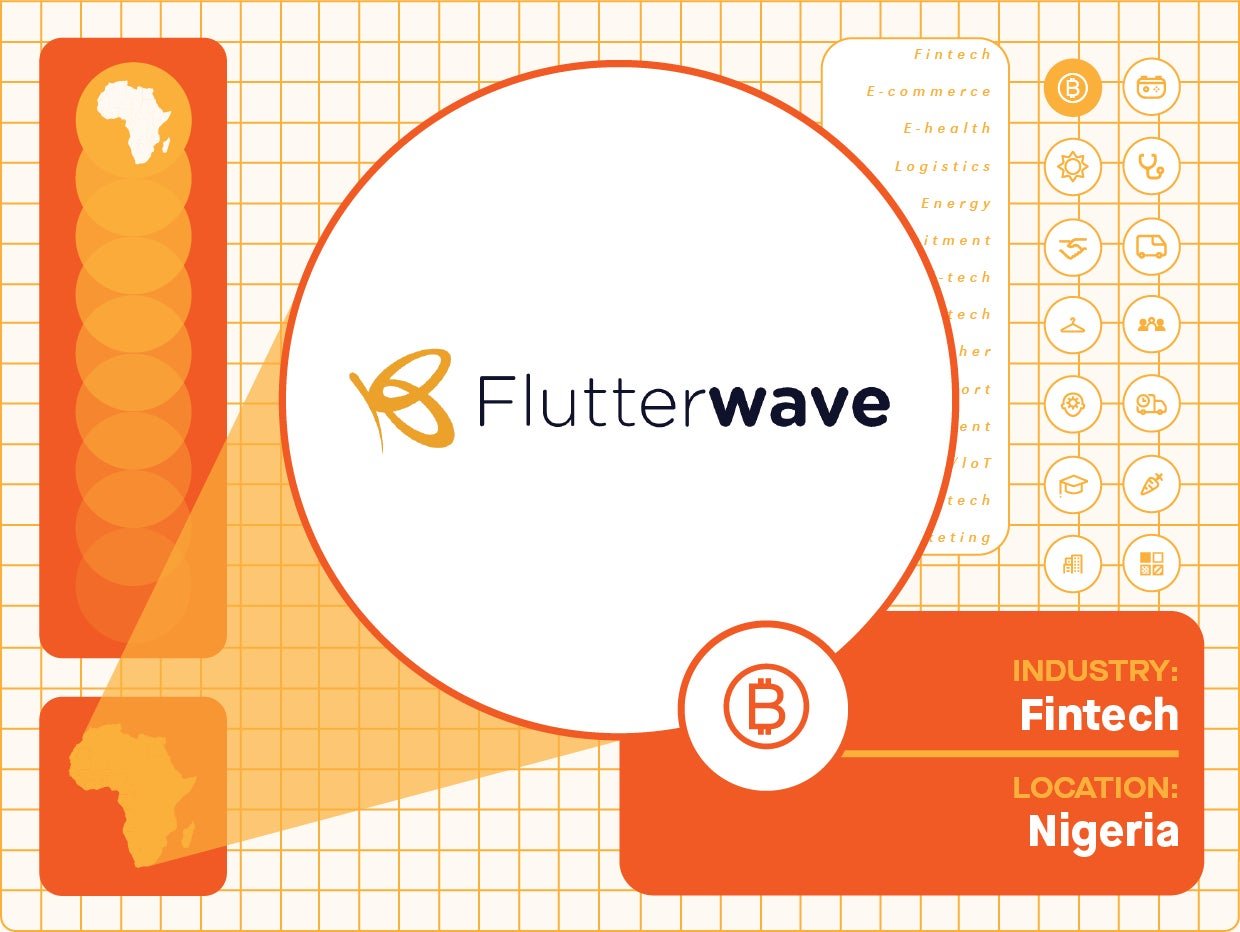Jumia’s stock hit a one-year low despite a year of milestones
Hi Quartz Africa readers,
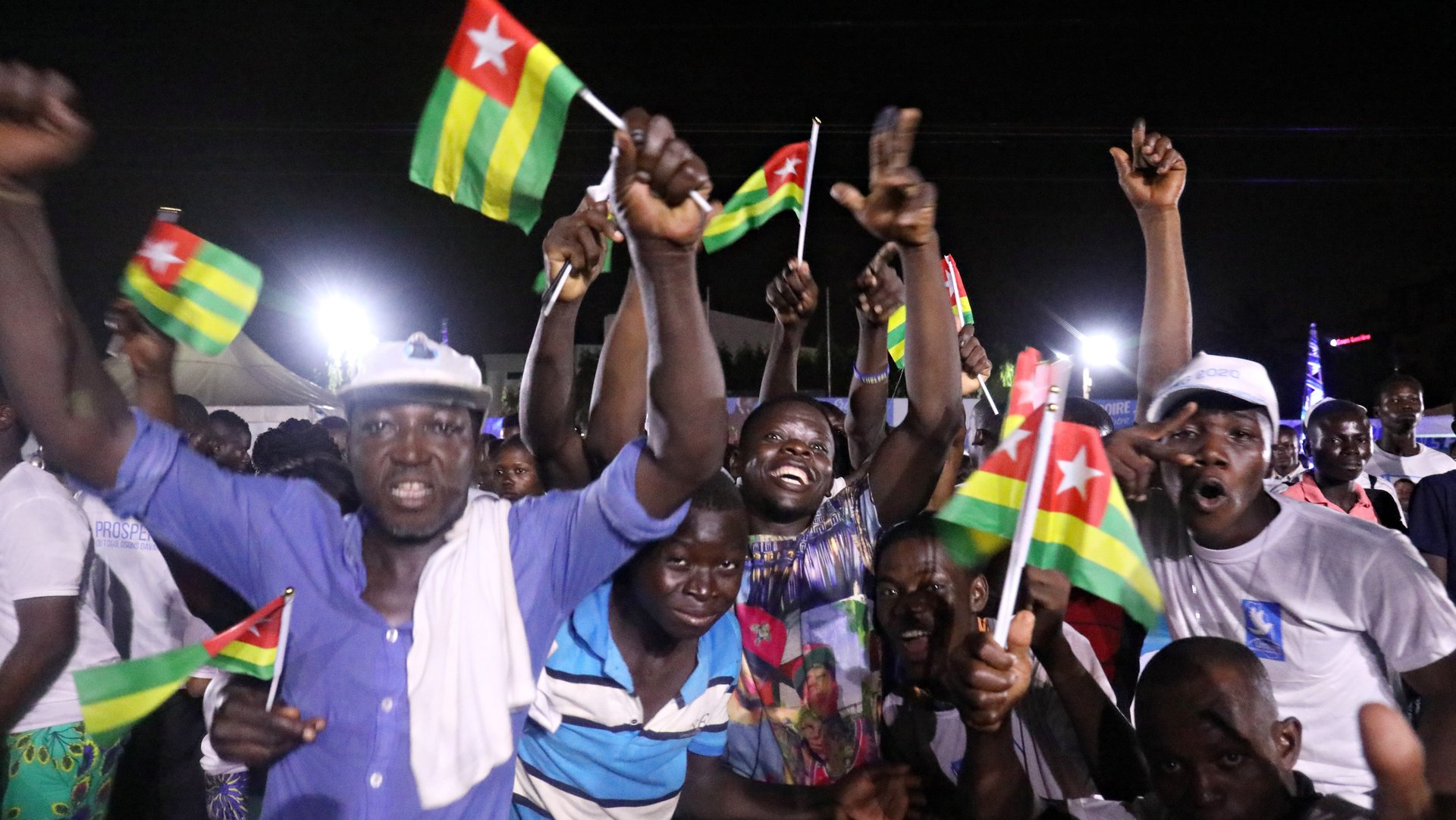

Hi Quartz Africa readers,
Sokowatch, a Nairobi-based B2B company that connects informal retailers to manufacturers, has raised $125 million in a Series B round and rebranded to Wasoko.
The company also announced that it has expanded to Senegal and Côte d’Ivoire, its first markets outside east Africa, where it operates in Kenya, Tanzania, Rwanda, and Uganda.
Africa’s B2B market for informal retailers is growing fast. Wasoko’s announcement follows two similar big moves last month when Nigeria’s TradeDepot bought Ghana’s Green Lion and Kenya’s MarketForce announced a $40 million Series A round.
The model has high potential—at least 90% of sales in many parts of Africa take place informally through markets, convenience stores, and street hawkers. Since its launch in 2016, Sokowatch has created a network of more than 50,000 informal retailers across 18 operating cities and has completed more than 2.4 million orders.
This model helps shopkeepers easily source goods and manufacturers to ensure that their products are consistently available to consumers. The B2B companies are also able to use its data to offer the retailers credit.
Africa has vast but largely untapped e-commerce potential. Globally, B2B e-commerce is up to five times the size of B2C e-commerce. With B2B businesses increasingly emerging and thriving—and some B2C businesses changing their approach to B2B—Sokowatch, TradeDepot, Green Lion, MarketForce, and other B2B companies in Africa could unlock that potential. —Carlos Mureithi, east Africa correspondent
$16 billion+: Value of transactions processed by Flutterwave
$3 billion: Flutterwave’s valuation as of February 2022
900,000+: Businesses served by Flutterwave globally
$250 million: Amount raised by Flutterwave in 2022
77: African fintech startups that raised more than $1 million in 2021
48%: Portion of all African funding that went to fintech startups in 2021
93%: Portion of all 2021 African fintech funding that went to Nigeria, Egypt, South Africa, and Kenya
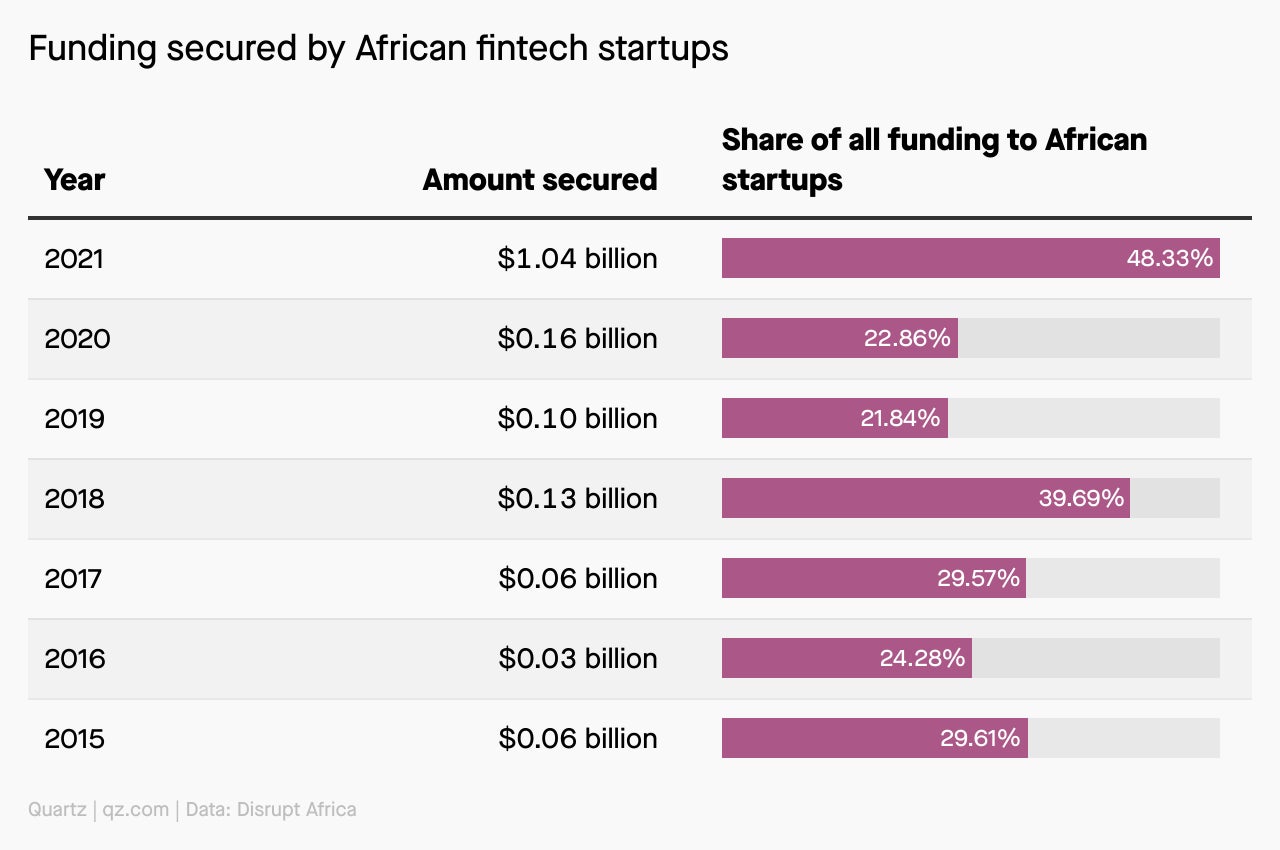
👆 This is a preview of our latest Quartz Africa Member Brief. To check out our next one, sign up for a free trial of Quartz Africa membership.
Stories this week
The Russia-Ukraine war threatens Africa’s wheat supply. Carlos Mureithi reports on how the conflict may heighten food insecurity in some parts of the continent.
Google’s cable will land first in Togo. Equiano, the tech giant’s subsea project to boost internet access in Africa, will first hit the west African country, Alexander Onukwue reports. It is estimated to add $351 million to the country’s economic output by 2025.
Architecture’s most prestigious prize honored African genius. Diébédo Francis Kéré, a Burkinabè-German architect known for climate-resilient structures, became the first African to receive the Pritzker Prize, architecture’s most prestigious honor, Anne Quito reports.
Diesel goes premium in Nigeria. It’s partly due to the Russia-Ukraine war, but Alexander Onukwue explains the other reasons for the doubling of fuel prices at Nigerian gas stations since the beginning of the year.
A good time for African tech media. Nigera-based Big Cabal Media recently completed a $2.3 million seed round—Alexander Onukwue explores how tech media outlets have grown from an age of blogging to become important publications influencing the continent’s innovation.
Charting
Africa’s e-commerce leader Jumia does not seem to have impressed investors with its 2021 earnings report, and its share price reached a new one-year low of $7.25 at the end of trading on the New York Stock Exchange (NYSE) on March 11.
Jumia achieved record active user and order milestones last year, partly due to an advertising blitz. Its delivery is more efficient, and its logistics are so good, Jumia now offers its expertise to other companies. But if the stock market is a gauge of how excited the public is about these plans, the reception has been underwhelming.
The African e-commerce company’s stock slipped to a new 52-week low despite the strong numbers posted in its 2021 earnings report, Alexander Onukwue reports.
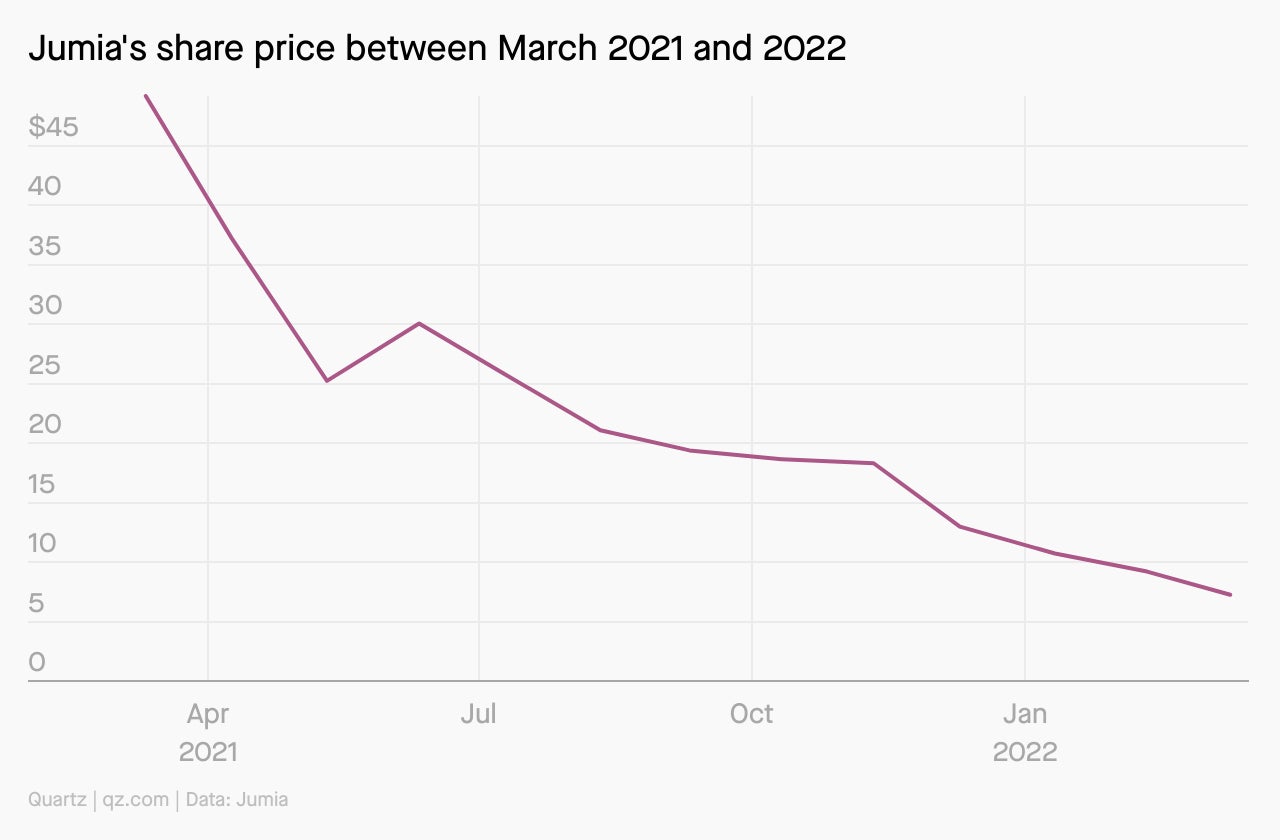
Dealmaker
Moove, a Nigerian vehicle financing startup, raised $105 million in a follow-on round of funding seven months after closing a $25 million series A. Investors in this round include Speedinvest, Left Lane Capital, thelatest.ventures, AfricInvest, MUFG Innovation Partners, Latitude, and Kreos Capital. Moove operates in Nigeria, Ghana, Kenya, and South Africa.
Kenya-based 4G Capital, a credit provider to small businesses, raised $18.5 million to increase its credit limit, lend to larger businesses, and up its repayment period for borrowers. The company raised the money from Lightrock, a private equity firm based in London.
Spleet, a Nigerian startup for short-let rental, raised $625,000 in pre-seed money in a round led by MetaProp VC. The company says it will use the money to build out a feature for users to rent apartments and pay later.
Quartz Gems
How does a satellite dish work? The Earth is round. Radio signals travel in a straight line. This limits the range of any signal being broadcast—go too far, and good luck trying to catch the game or the 10:00 news.
Satellite television addresses this problem by using a giant dish to send signals from a terrestrial broadcast center to an orbiting satellite. The satellite receives the station’s signals and sends them back to Earth. On the ground, a satellite dish picks up the signal from the orbit satellite. The parabolic shape of the dish reflects the signals to the dish’s focal point, where a waveguide gathers them and transmits them to a receiver such as a decoder or set-top box connected to a TV.
Now, cable and streaming are quickly replacing satellite television in the West. But in the rest of the world, dishes are still basking in glory. Learn more about satellite dishes in a recent Quartz Weekly Obsession email written by east Africa correspondent Carlos Mureithi.

What do a wooden toe and a brain implant have in common? After centuries of use in assisting the differently abled, prosthetics of the future are increasingly focused on boosting the able-bodied. Would you go for a bionic organ, at-home exoskeleton, or computer brain implant? Learn more about the potential—and potential pitfalls—of the next era of human upgrades with this week’s episode of the Quartz Obsession podcast.
🎧 Listen on: Apple Podcasts | Spotify | Google | Stitcher
Quotable
“Imagine dying from an overseas disease when you don’t even own a passport #COVID19SouthAfrica”
During the early days of the pandemic, his tweet, along with thousands of others, became part of a study on Twitter conversations in South Africa and Kenya that highlighted enduring postcolonial issues of race and power.
According to the study, published in the Journal of African Media Studies this month: “… the covid-19 pandemic provoked strong racial fear in both South Africa and Kenya… Both the Chinese in Kenya and the white communities in South Africa were blamed for bringing in the first cases of covid-19 through their travel escapades,” Maxine Betteridge-Moes writes.
Quartz Event
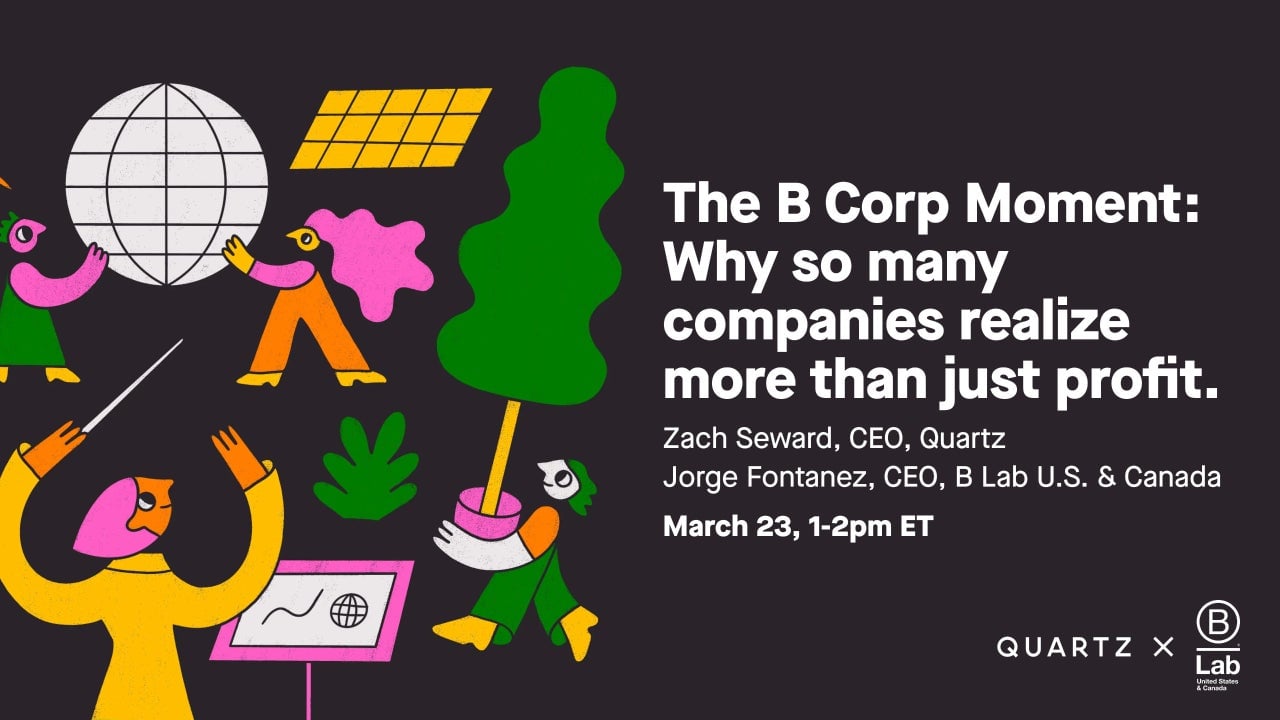
Balancing purpose with profit. Quartz is teaming up with B Lab US & Canada to host a special conversation with leading B Corp CEOs as we discuss business as a force for good. Join us for this free, virtual event on March 23, 1-2pm US eastern time.
The event is co-hosted by Quartz CEO Zach Seward and B Lab CEO Jorge Fontanez. You’ll also hear from Seventh Generation CEO Alison Whritenour, and more.
Other things we liked
A modern dahomey warrior. For the Guardian, Jill Filipovic profiles Benin’s first female VP, Mariam Chabi Talata, who talks about women’s bodies, Amazon warriors, and being called a feminist.
A VC firm makes big bets in Africa. For TechCrunch, Tage Kene-Okafor analyzes the moves of the New York hedge fund Tiger Global, a key investor in Africa’s startup ecosystem.
Africa has the gas Germany needs. For Foreign Policy, Vijaya Ramachandran argues that as Germany looks to wean itself off Russian energy, it should look to Africa as its new source.
Egypt is dealing with rising bread costs. Sarah El Safty and Aidan Lewis describe how Egyptian shoppers deal with bread shortages as the Russia-Ukraine war disrupts Black Sea wheat exports.
ICYMI
The evolution of real estate. Invest Africa will hold a panel discussion on opportunities and challenges facing the sector in Africa. (March 29)
Swahili voice tech initiatives. Mozilla Common Voice is calling for proposals for Swahili voice technology projects for agriculture and finance in Kenya, Tanzania, and the Democratic Republic of Congo. (March 22 for letter of intent and April 12 for full application)
🎵 This brief was produced while listening to “Blessings follow me” by Yo Maps (Zambia)
Our best wishes for a productive and ideas-filled week ahead. Please send any news, comments, suggestions, ideas, underwater cables, and affordable wheat to [email protected]. You can follow us on Twitter at @qzafrica for updates throughout the day.
If you received this email from a friend or colleague, you can sign up here to receive the Quartz Africa Weekly Brief in your inbox every week. You can also follow Quartz Africa on Facebook.
